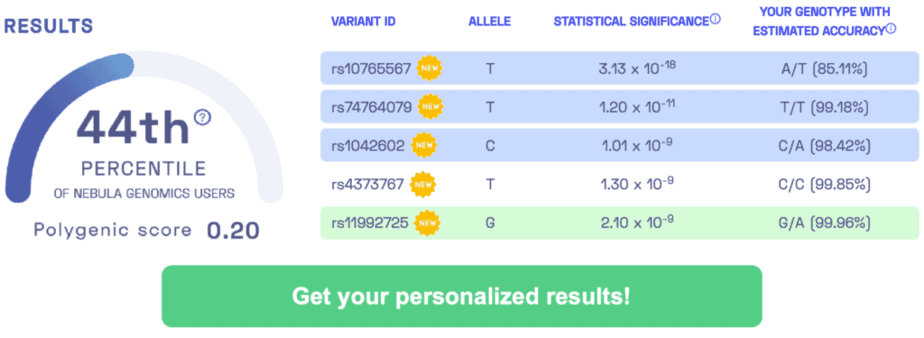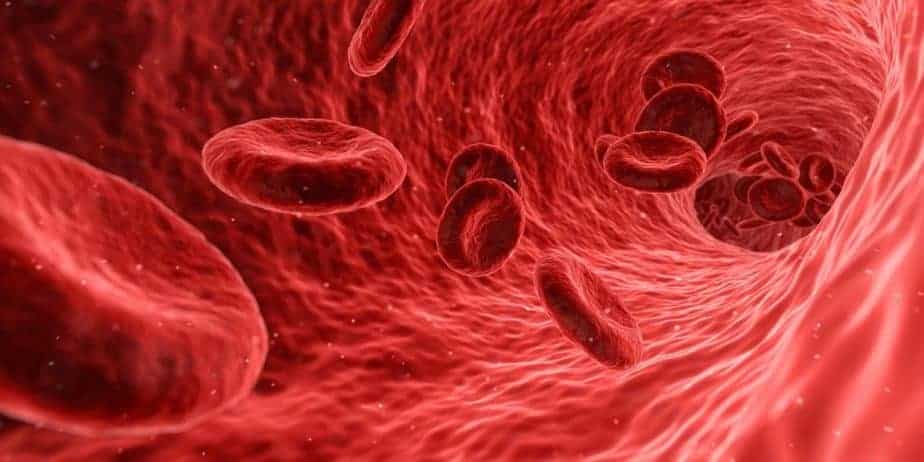SUMMARY: Identification of 22 new genetic variants associated with venous thromboembolism.
OVERVIEW: Venous thromboembolism is characterized by the formation of blood clots, typically in veins of the legs. Such blood clots can block the blood flow, resulting in painful swelling of the limbs. The blood clots can also travel to the lungs, resulting in pulmonary embolism, a dangerous condition associated with high mortality. To better understand genetic factors contributing to the risk of venous thromboembolism, this genome-wide association study examined over 650,000 individuals of European, African, and Hispanic ancestry and discovered 22 new genetic variants. Some of the implicated genes play a role in the regulation of LDL cholesterol (our “bad cholesterol”) in the blood.
DID YOU KNOW? Pulmonary embolism often goes underdiagnosed. The symptoms can range from chest pains and shortness of breath to pain or tenderness in the limbs.[SOURCE]
SAMPLE RESULTS: Learn more about the Nebula Research Library.

VARIANTS ASSOCIATED WITH VENOUS THROMBOEMBOLISM: rs6025, rs9411377, rs4253417, rs2066865, rs1799963, rs78707713, rs10747514, rs2288904, rs12445050, rs4734879, rs10886430, rs6048, rs216296, rs174536, rs7585314, rs3002417, rs3211752, rs7051718, rs9607928, rs6083037, rs7739314, rs1654425, rs1867312, rs6795524, rs1048483, rs16867574, rs57328376, rs12824685, rs2842700, rs13084580, rs10087301, rs2074492, rs731839
ADDITIONAL RESOURCES:
Arterial Disease
LDL Cholesterol
WEEKLY UPDATE: November 9, 2019
